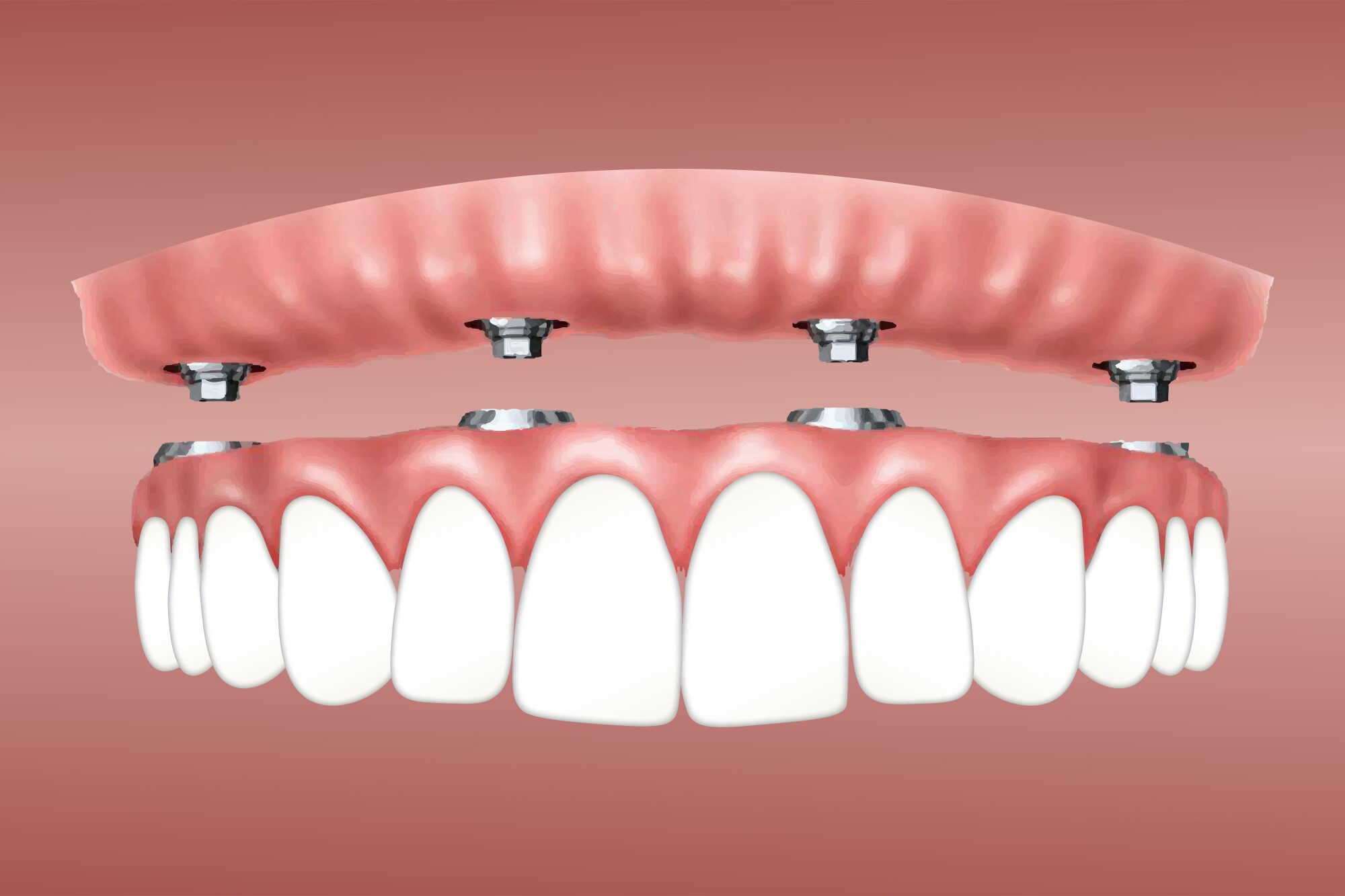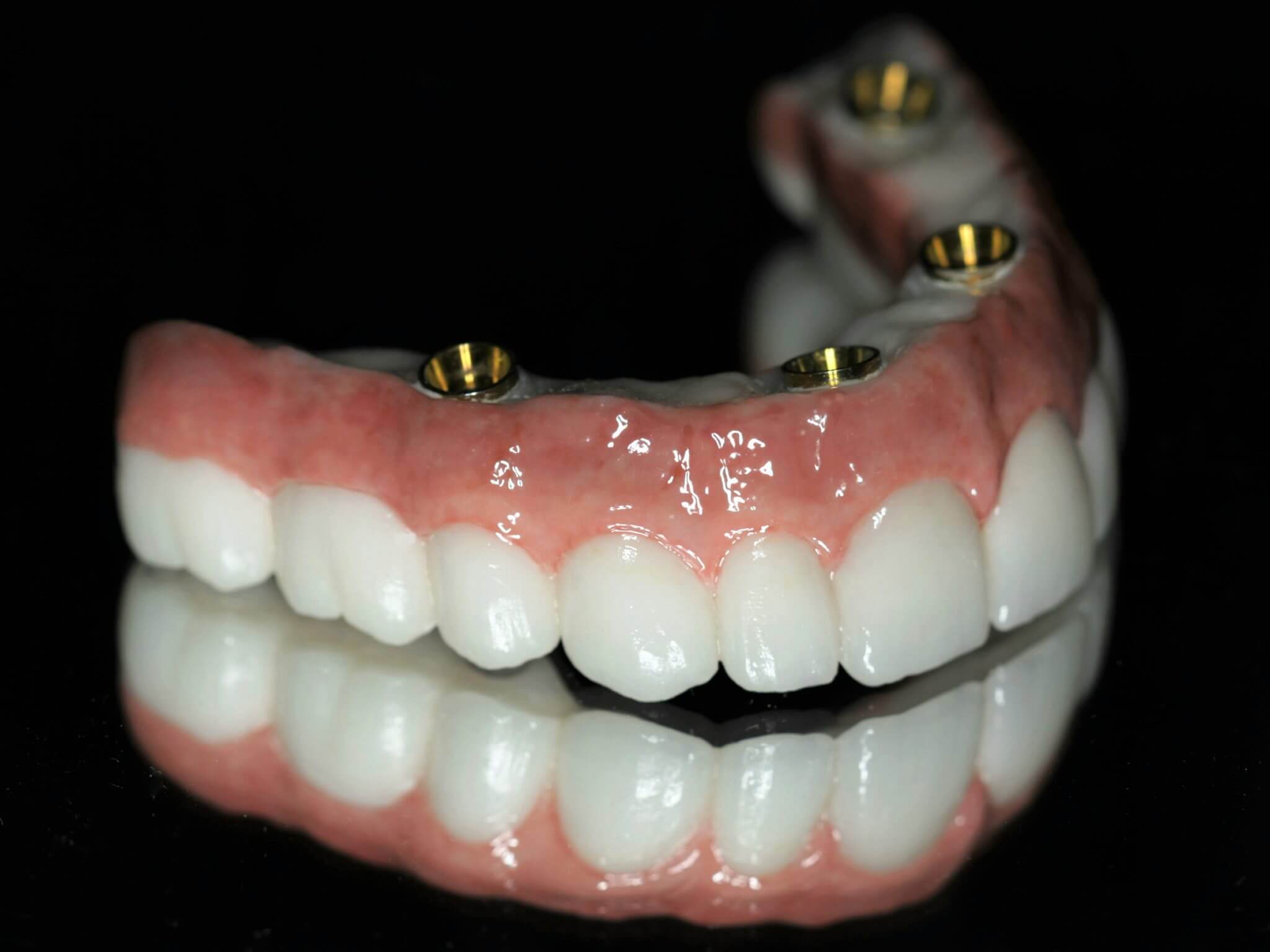What Does Dental Sense Do?
What Does Dental Sense Do?
Blog Article
The 15-Second Trick For Dental Sense
Table of ContentsThe Single Strategy To Use For Dental SenseSome Ideas on Dental Sense You Should KnowThe Ultimate Guide To Dental SenseDental Sense - Truths
are clinical devices surgically implanted right into the jaw to recover an individual's capability to eat or their look. They provide assistance for synthetic (phony) teeth, such as crowns, bridges, or dentures. When a tooth is shed due to injury or condition, an individual can experience complications such as fast bone loss, faulty speech, or modifications to chewing patterns that result in pain.Oral implant systems consist of a dental implant body and oral implant joint and might also include a joint addiction screw. Dental implant vs bridge. The dental implant body is operatively placed in the jawbone instead of the tooth's origin. The oral implant joint is usually attached to the dental implant body by the abutment fixation screw and extends via periodontals right into the mouth to support the affixed man-made teeth
(https://disqus.com/by/dentalsense1/about/)Structure of The Oral Implant System choosing dental implants, speak to your dental copyright concerning the potential benefits and dangers, and whether you are a candidate for the procedure. Points to consider: Your overall health is a crucial consider establishing whether you are a good candidate for dental implants, how much time it will certainly require to recover, and exactly how long the implant might remain in location.
Cigarette smoking may affect the recovery procedure and lower the lasting success of the implant. The recovery procedure for the dental implant body may take a number of months or longer, during which time you usually have a short-term joint instead of the tooth. the oral implant treatment: Meticulously adhere to the oral health directions offered to you by your dental provider.
The Of Dental Sense
Implant failing can result in the requirement for one more medical procedure to deal with or replace the dental implant system. Recovers the ability to chew Recovers cosmetic appearance Assists maintain the jawbone from shrinking because of bone loss Preserves the health and wellness of the bordering bone and gums Helps keep surrounding (neighboring) teeth stable Enhances high quality of life Damages to surrounding all-natural teeth throughout implant placement Injury to the surrounding tissues throughout surgery, such as sinus perforation Injury during surgical procedure (for instance, fracture of surrounding jawbone) Poor function, such as seeming like the teeth do not bite with each other normally A feeling that the tooth hangs or turning in location resulting from a joint screw loosening up Implant body failing (looseness of the implant body) due to systemic infection, which may be more likely in individuals with unchecked diabetics issues because of local infection in bone and periodontals supporting the dental implant body as a result of postponed recovery, which might be extra most likely in individuals who smoke Trouble cleaning up the periodontals around the implant, leading to bad dental health Untreated periodontal illness Post-surgical tingling due to nerve impingement or damage Constantly notify wellness treatment suppliers and imaging service technicians that you have oral implants before any type of magnetic vibration imaging (MRI) or x-ray procedures.
FDA is not familiar with any negative events reported for MRI or x-ray treatments with dental implants. Dental implants systems are normally constructed from products that adhere to worldwide consensus standards of the International Organization for Standardization (ISO) or ASTM International. These standards have information of what makes a secure material.

An oral implant is a structure that replaces a missing out on tooth. With screw-like gadgets, the doctor inserts an implant right into the jawbone, and it functions as a support for an artificial tooth, called a crown. A tool called an abutment links the synthetic tooth to the oral implant. The crown is custom-made to fit the person's mouth and match the color of their teeth.
The Best Guide To Dental Sense
Some individuals are not qualified for oral implant surgical treatment. It is for oral specialists to operate individuals with: acute illnessuncontrollable metabolic diseasebone or soft tissue illness or infectionIf these issues are solved, an individual can have the surgery. In, oral surgeons avoid running on individuals with: If individuals with any one of the above undergo dental have a peek at these guys implant surgical treatment, there is a higher danger of the dental implant falling short.

Oral implant surgical procedure is a customized process. Give you time to heal. Attach the post and last crown, bridge or denture.
Next off, your surgeon will meticulously put the dental implant right into your jaw. If your implant is near the front of your mouth, your dental professional will make a short-lived tooth for you to put on up until you recover.
The 4-Minute Rule for Dental Sense
Your service provider can tell you what to anticipate in your situation. During the healing phase, your jawbone must fuse to the oral implant. This procedure, called osseointegration, is vital for security and lasting success. This process can take anywhere from three to 9 months. In some situations, it might take longer.
When your dental implant heals, your dental professional can affix the joint (tiny adapter blog post) and your final restoration (crown, bridge or denture). This typically takes about one hour to finish and may require a 2nd small surgery. You shouldn't really feel any kind of discomfort during your oral implant procedure because your provider will utilize drug to numb your gums.
Report this page